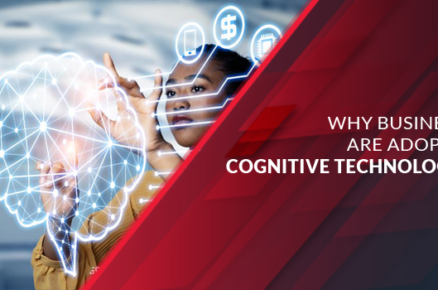The roles of big data and the analysis of it in the pharmaceutical industry are ever-growing and more important as time moves on – and this could help improve patients’ health as well as increase the life expectancy of the human race all over the world.
Role of Big Data in the ever-growing Pharmaceutical Industry
The pharmaceutical industry is one of the world’s most important industries, and the United States has a 45% share of the global market. After the coronavirus pandemic, it is expected to grow at an even higher percentage. In only a few months the industry has shot up the growth of about 9%. But when lawsuits are filed, it can lead to some of these companies spending billions in settlements. False claims are the costliest lawsuits, but there are also liability lawsuits that cost pharma companies billions of dollars annually. Big data has become a key tool to reduce the pharma industry’s expenses and lawsuits from the very start: research and development.
Research and Development Stagnation and Success Rate
One of the key areas of pharmaceuticals liability is the research and development process. Drugs are rushed to market due to the high demand and meeting the demand, and in the process, common issues can be easily overlooked. This has pushed many companies into a state of stagnation wherein there are only a few products in their pipeline. Big data is being used to help in many ways the industry is facing issues:
Big Data in assisting clinical trials
Innumerable clinical trials are used to test whether a specific treatment is really effective and equally safe for human subjects. This procedure involves multiple stages of investigation before a final FDA review. The entire long process of clinical trials is immensely complicated and is full of major delays and a lot of rework involved going back and forth in the trial process and testing. Pharmaceutical companies lose millions of dollars worth of revenue due to these delays and process restarts. Additionally, several clinical trials fail as recruiting patients for the trial is quite difficult. For recruitment, physicians have to manually review a list of eligible patients, which can be expensive and time-consuming. Testing comes with many complications and permutations and combinations have to all fit well in order for the trial to be successful.
Big data can help recruit patients using robust data such as genetic information, personality traits, and disease status. Big data can also process huge amounts of data as well as retrials and also come up with predictions as well as highlight major findings in trends. With this approach, physicians can understand various medical details of every patient and analyze whether a patient would be eligible for a clinical trial. Big data, therefore, helps reduce the time required for such tests as well as to conduct the tests with more accuracy and lower the costs of trials by a big difference. Also, with the help of big data, physicians can use electronic medical records as their primary source of data for clinical trials, reducing data entry errors and speeding up medical procedures.
Big data used for Real-Time, Rapid Identification
With Big data, real-time information analysis is possible or becoming possible, thanks to big data solutions. Trials can now be monitored in real-time to allow for:
- Quicker safety measures
- Faster response to costly issues
- Fewer unnecessary delays
When a real-time analysis procedure is performed, it’s possible for research and development to have a higher success rate along with better and more accurate outcomes for trial participants. This is the reason why drugmakers are working continuously to make it easier to obtain your health records. Health records are a treasure of data that big pharma companies can use to have a better understanding of how medicine works in the real-world environment. Pharma companies are teaming up fast with tech companies that can make sense of big data. Real-world evidence offers a powerful tool to:
- Correct issues with drugs
- Provide value for drugs
Random clinical trials are less effective than real-world information because there are strict controls in place. Real-world information can even help connect drugs to new usages that the company didn’t realize were possible. Data is being gathered from:
- Medical records
- Insurance claims
- Social media
Big data technology in Drug Discovery
Covid19 pandemic has led to a huge increase in the usage of Big data in the discovery of vaccines as well as the right medication related to the disease.
Traditionally, researchers implemented an iterative process of physically testing various plant and animal compounds to discover new drugs. Therefore, drug discovery can require an immense amount of time and valuable resources, which may be very inconvenient for patients with disorders like Ebola, swine flu, and typhoid, especially during epidemics. For instance, drugs needed for Amyotrophic Lateral Sclerosis (ALS) took years to be developed and approved. The cost of developing such drugs can also be increasingly expensive. Hence, pharmaceutical companies may invest in compounds that are most likely to be approved in clinical trials and have low production costs.
By accurately leveraging big data in the pharmaceutical industry, researchers can easily utilize predictive modeling for drug discovery. Predictive modeling can enable researchers to accurately predict drug interactions, toxicity, and inhibition. For this purpose, many predictive models use advanced mathematical models and simulations that help in predicting how a particular compound will react with a human body. Predictive models can also use historical data collected from previous clinical studies, medical trials, and post-marketing surveillance. Together, all this data can help in predicting FDA approval and patient outcomes.
Big Data usage in Drug Reactions and discovery of toxicity in humans and the environment:
In many scenarios, medications may lead to harmful effects on a patient’s health known as adverse drug reactions (ADRs) and various types of allergies. ADRs can be a result of the inability to precisely replicate real-world scenarios during clinical trials. ADR reporting systems generally depend on regulatory reports that are released by lawyers, pharmacists, and clinicians. However, the valuable information in ADR reports can be misinterpreted or lost. Therefore, several patients complain about ADRs or side effects on social networks such as Facebook and Twitter or online medical forums which can turn out to be detrimental for the drug company as well as regulatory departments.
Pharmaceutical companies can mine social media platforms and medical forums for ADRs and patient reviews. For this purpose, pharmaceutical businesses can use sentiment analysis and natural language processing. The collected data can be analyzed with the help of big data analytics. With this approach, pharmaceutical companies can gather insights about adverse drug reactions. Hence, the process of reviewing drug reactions can be simplified by leveraging big data in the pharmaceutical industry.
Big Data usage in inventing Precision Medicine
Big data can be the key enabler of precision medicine, where diagnosis and treatment of disorders are carried out using relevant data about a patient’s genetic make-up, environmental factors, and behavioral patterns. With this approach, pharmaceutical companies can develop personalized medicines that are suitable for an individual patient’s genes and current lifestyle. Also, precise medicine can predict susceptibility to certain disorders and improve disorder detection in patients. With this approach, precision medicine has a higher probability of providing successful treatment compared to conventional medicines. Precise medicine may also save costs that occur in conventional medicines.
Big data in promoting Sales and Marketing efforts by pharma companies
The accurate utilization of big data in the pharmaceutical industry can enhance its sales and marketing efforts. With the help of big data analysis and trend identification, business leaders and decision-makers can analyze which geographical locations and sell the highest number of promoted medicines. With such data, businesses may choose to supply more promoted products in those areas. Similarly, pharmaceutical companies can obtain critical data from various sources, helping them to make key decisions in their marketing and sales strategies.
The usage of big data in the pharmaceutical industry will allow business leaders to analyze large volumes of data about customer behavior patterns, the impact of advertisement campaigns, and customer retention strategies. Using such data and machine learning technologies, businesses can perform predictive analytics to find patterns and trends within the acquired data and make accurate predictions regarding industry trends and consumer behavior or disease patterns example malaria, dysentery, flu etc… Using this approach, business leaders can be better prepared for upcoming industry trends.
Therefore we can say that Big Data is Revolutionizing the Drug Industry. The pharmaceutical industry is undergoing massive changes, largely due to advances in big data. This is going to help them identify new market opportunities, save money, and improve the R&D process to release more effective drugs to the market.
[ Author Credit: Andrej Kovacevic ]
Tyrone servers & workstations are massively parallel, high-density servers that help you meet the cost, performance, and responsiveness demands of big data analytics high-performance computing. Write to us: link:info@tyronesystems.com












